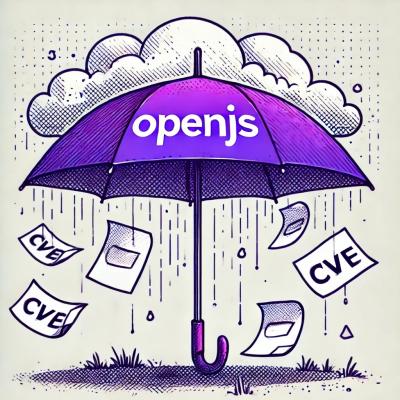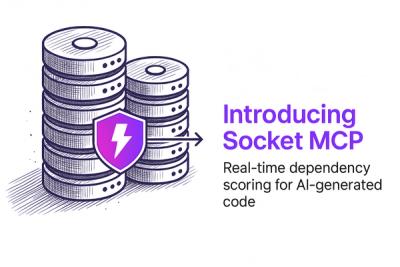

bulkerrs
import "github.com/eurielec/bulkerrs"
This package provides a simple and effective way to collect errors while simplifies the flow complexity of sequential and conditional safety checks.
The exported 'NewErr' and 'NewErrOr' alows initialization with or without a previous 'Errs'. Theses functions work like a wrap around the built-in and 'juju/errors' constructor functions.
Once initialized, 'errs.NewErr' and 'errs.NewErrWithCause' work as a replacement of 'errors.NewErr' and 'errors.NewErrWithCause' that appends the generated jujuErr to the inner errors. Also the function 'errs.Append' appends the submitted error arguments to the inner slice.
A primary use case for this library is to append multiple errors while doing a sequence of checkings.
errs := make([]error, 0)
if err := checkFunc1(); err != nil {
errs = append(errs, err)
}
if err := checkFunc2(); err != nil {
errs = append(errs, err)
}
Would become with github.com/juju/errors:
errs := make([]error, 0)
if err := checkFunc1(); err != nil {
errs = append(errs, errors.Trace(err))
}
if err := checkFunc2(); err != nil {
errs = append(errs, errors.Annotate(err, "more context"))
// Adding annotation to the error
}
And with bulkerrs:
errs := bulkerrs.NewErrOr(checkFunc1())
errs.NewErrWithCause(checkFunc2(), "more context")
There's no longer need to check if the error is nil.
Additionally, bulkerrs makes easy to integrate the errors appendings in the application control flow:
errs := make([]error, 0)
if err1 := checkFunc1(); err1 != nil {
errs = append(errs, err1)
if err1_1 := checkFunc1_1(); err1_1 != nil {
errs = append(errs, err1_1)
}
} else if err2 := checkFunc2(); err2 != nil {
errs = append(errs, err2)
if err2_1 := checkFunc2_1(); err2_1 != nil {
errs = append(errs, err2_1)
}
} else {
if errx_1 := checkFuncx(); errx_1 != nil {
errs = append(errs, errx_1)
} else {
return nil
}
}
return &errs
Would become:
errs := bulkerrs.NewErr()
if errs.Append(checkFunc1()) {
errs.Append(checkFunc1_1())
} else if errs.Append(checkFunc2()) {
errs.Append(checkFunc2_1())
} else {
errs.Append(checkFuncx())
}
// return an error if len(errs.errors) > 0 or nil
return errs.ToError()
And if needed, like in github.com/juju/errors, it's possible to add extra context, and have an advanced control of the application flow:
errs := bulkerrs.NewErr()
if err1 := checkFunc1(); errs.AppendIfX(err1 != nil, errors.Annotate, "more context1", err1) {
errs.Append(checkFunc1_1())
} else if err2 := checkFunc2(); errs.AppendIfX(err2 == nil, errors.Annotate, "This should have failed but didn't", nil) {
errs.Append(checkFunc2_1())
} else {
errx := checkFuncx()
// add extra error types
errs.AppendIfX(errx != nil, errors.NewNotValid, "more context", errx)
}
return errs.ToError()
When you want to check to see if an error is of a particular type, a helper function is normally exported by the package that returned the error, like the 'os' package does. The underlying cause of the error is available using the 'Cause' function. os.IsNotExist(errors.Cause(err)) The result of the 'Error()' call on an annotated error is the annotations joined with colons, then the result of the 'Error()' method for the underlying error that was the cause. err := errors.Errorf("original") err = errors.Annotatef(err, "context") err = errors.Annotatef(err, "more context") err.Error() -> "more context: context: original" Obviously recording the file, line and functions is not very useful if you cannot get them back out again. errors.ErrorStack(err) will return something like: first error github.com/juju/errors/annotation_test.go:193: github.com/juju/errors/annotation_test.go:194: annotation github.com/juju/errors/annotation_test.go:195: github.com/juju/errors/annotation_test.go:196: more context github.com/juju/errors/annotation_test.go:197: The first error was generated by an external system, so there was no location associated. The second, fourth, and last lines were generated with Trace calls, and the other two through Annotate. Sometimes when responding to an error you want to return a more specific error for the situation. if err := FindField(field); err != nil { return errors.Wrap(err, errors.NotFoundf(field)) } This returns an error where the complete error stack is still available, and 'errors.Cause()' will return the 'NotFound' error.
Index
func IsAlreadyExists(err error) bool
func IsBadRequest(err error) bool
func IsForbidden(err error) bool
func IsMethodNotAllowed(err error) bool
func IsNotAssigned(err error) bool
func IsNotFound(err error) bool
func IsNotImplemented(err error) bool
func IsNotProvisioned(err error) bool
func IsNotSupported(err error) bool
func IsNotValid(err error) bool
func IsTimeout(err error) bool
func IsUnauthorized(err error) bool
func IsUserNotFound(err error) bool
Errs holds an array of JujuErr (juju/errors).
It may be embedded in also custom error types that have been converted to JujuErr.
type Errs struct {
}
func Concat(errs ...error) Errs
func NewErr() Errs
func NewErrOr(err error) Errs
func (*Errs) Append
func (e *Errs) Append(errs ...error) bool
func (e *Errs) AppendIf(condition bool, msg string) bool
Appends error if condition, returns condition
func (e *Errs) AppendIfX(condition bool, newErr NewXFn, msg string, other error) bool
func (*Errs) Error
func (e *Errs) Error() string
func (*Errs) Errors
func (e *Errs) Errors() []string
func (e Errs) Format(s fmt.State, verb rune)
func (e *Errs) InnerErrors() []error
func (*Errs) NewErr
func (e *Errs) NewErr(format string, args ...interface{})
func (e *Errs) NewErrWithCause(other error, format string, args ...interface{})
func (e Errs) ToError() error
type IsXFn func(err error) bool
If an error complies this interface, then it's a juju error :)
type JujuErr interface {
Cause() error
Error() string
Format(fmt.State, rune)
Location() (string, int)
Message() string
SetLocation(int)
StackTrace() []string
Underlying() error
}
Juju Error function interfaces
type NewXFn func(error, string) error
Generated by gomarkdoc



